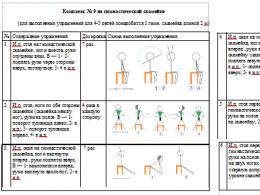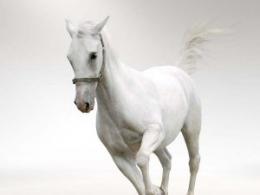How long does a goldfish's memory last? And again ... Australia. Experiences around the world
Probably everyone knows the saying “memory is like a goldfish”, or the myth that it lasts only 3 seconds. He is especially fond of referring to aquarium fish. However, this saying is false, there are many examples where scientists have proven that the memory of these creatures lasts much longer. Below are two scientific experiment conducted different people and in different time proving this fact.
Australian experiment
It was directed by a fifteen-year-old student Rorau Stokes. The young man initially doubted the veracity of the statement about the short memory of fish. It was calculated to determine how long the fish will remember an important object for her.
For the experiment, he placed several goldfish in an aquarium. Then, 13 seconds before feeding, he lowered a beacon-mark into the water, which served as a signal that there would be food in this place. He lowered it in different places so that the fish would not remember the place, but the mark itself. This happened within 3 weeks. It is interesting that in the first days the fish gathered at the mark for a minute, but after a period of time this time was reduced to 5 seconds.
After 3 weeks had passed, Rorau stopped placing marks in the aquarium and fed them for 6 days without marks. On the 7th day, he again placed the mark in the aquarium. Surprisingly, it took the fish only 4.5 seconds to gather at the mark in anticipation of food.
This experiment showed that the memory of goldfish is much longer than many people thought. Instead of 3 seconds, the fish remembered what the feeding beacon looks like for 6 days, and this is most likely not the limit.
If someone says that this is an isolated case, then here's another example for you.
Canadian cichlids
This time the experiment was set up in Canada, and it was designed to remember the fish not the mark, but the place where the feeding took place. For him, several individuals of cichlids and two aquariums were taken.
Scientists from the Canadian MacEwan University placed cichlids in one aquarium. For three days they were fed strictly in certain place. Of course, on the last day, most of the fish swam closer to the area where the food appeared.
After that, the fish were moved to another aquarium, which was not similar in structure to the previous one, and also differed in volume. The fish spent 12 days in it. They were then placed back into the first aquarium.
After conducting the experiment, the scientists noticed that the fish concentrated in the same place where they were fed for most of the day before being moved to the second aquarium.
This experiment proved that fish can remember not only any marks, but also places. Also, this practice has shown that cichlids can have a memory of at least 12 days.
Both experiments prove that the memory of fish is not so small. Now it’s worth understanding what exactly it is and how it works.

How and what fish remember
River
First, you need to consider that the memory of fish is completely different from human. They do not remember how people, some bright events life, holidays, etc. Basically, its components are only vital memories. In fish living in natural environment, These include:
- feeding places;
- places to sleep;
- Dangerous places;
- Enemies and Friends.
Some of the fish can remember the seasons and the temperature of the water. And river ones remember the speed of the current in a particular section of the river in which they live.
It has been proven that fish have precisely associative memory. This means that they capture certain images and then can reproduce them. They have long-term memory, which is based on memories. There is also a short-term, which is based on habits.
For example, river views can coexist in certain groups, where each of them remembers all the "friends" from their environment, they eat every day in one place and sleep in another and remember the routes between them that bypass especially dangerous zones. Some species, falling into hibernation, also perfectly remember their former places and easily reach areas where food can be found. No matter how much time passes, fish can always find their way to where they were and will be most comfortable.
Aquarium
Now consider the inhabitants of the aquarium, they, like their free relatives, have two types of memory, thanks to which they can perfectly know:
- A place to find food.
- breadwinner. They remember you, which is why, when you approach, they begin to swim briskly or gather at the feeder. No matter how many times you come to the aquarium.
- The time they are fed. If you do this strictly by the clock, then even before you approach, they begin to curl around the place where, presumably, there will be food.
- All the inhabitants of the aquarium that are in it, no matter how many there are.
This helps them distinguish between newcomers that you decide to hook up with them, which is why some species shun them at first, while others swim closer with curiosity in order to better study the guest. In both cases, the newcomer does not go unnoticed for the first time of his stay.
It's safe to say that fish definitely have a memory. Moreover, its duration can be completely different, from 6 days, as the experience of an Australian has shown, to many years, like in river carps. So if you are told that your memory is like a fish, then take it as a compliment, because some people have much less.
The answer to the question, what kind of memory do fish have, is given by research by biologists. They claim that their test subjects (freestyle and aquarium) demonstrate excellent both long-term and short-term memory.
Japan and zebrafish
In an attempt to understand how the long-term memory of fish is created, neuroscientists have observed the zebrafish: its small transparent brain is very convenient for experiments.
The electrical activity of the brain was recorded thanks to fluorescent proteins, the genes of which were previously introduced into the DNA of the fish. Using a small electric discharge, they were taught to leave the sector of the aquarium where the blue diode turned on.
At the beginning of the experiment, the neurons of the visual zone of the brain were excited after half an hour, and only a day later the neurons of the forebrain (analogous to the cerebral hemispheres in humans) picked up the baton.
As soon as this circuit began to work, the reaction of the fish became lightning fast: the blue diode caused the activity of neurons in the visual area, which turned on the neurons of the forebrain in half a second.
If the scientists removed the area with memory neurons, the fish were unable to long-term memorization. They were frightened by the blue diode immediately after the electrical impulses, but did not react to it in any way after 24 hours.
Also, Japanese biologists have found that if a fish is retrained, its long-term memory changes, rather than being formed again.
Memory in fish as a survival tool
It is memory that allows fish (especially those living in natural reservoirs) to adapt to the world around them and continue their race.
Information that fish remember:
- Areas rich in forage.
- Bait and bait.
- Direction of currents and water temperature.
- Potentially hazardous areas.
- natural enemies and friends.
- Places for overnight stays.
- Seasons.
You will never hear this false thesis from an ichthyologist or a fisherman, who often catch sea and river "long-livers", whose long existence is ensured by a strong long-term memory.
The fish retains memory by falling into hibernation and coming out of it. So, the carp chooses for wintering the same place, previously found by it.
The caught bream, if marked and released a little upstream or downstream, will definitely return to the baited place.
Perches that live in packs remember their comrades. Similar behavior is demonstrated by carps, straying into close communities (from two individuals to many dozens). Such a group leads the same way of life for years: they find food together, swim in the same direction, sleep.
The asp always runs along the same route and feeds on “its own”, once chosen territory.

Experiences around the world
Finding out whether fish have a memory, biologists came to the conclusion that the inhabitants water element able to reproduce associative images. This means that fish are endowed with both short-term (based on habits) and long-term (including memories) memory.
Charles Sturt University (Australia)
The researchers were looking for evidence that fish have a much more tenacious memory than is commonly thought. The role of the experimental was made by the sandy croaker inhabiting fresh water bodies. It turned out that the fish memorized and applied different tactics, preying on 2 types of her prey, and also remembered for months about how she encountered a predator.
A short memory in fish (not exceeding a few seconds) was also refuted experimentally. The authors considered that the fish brain stores information for up to three years.
Israel
Israeli scientists told the world that gold fish remembers what happened (at least) 5 months ago. The fish were fed in the aquarium, accompanying this process with music through underwater speakers.
A month later, music lovers were released into the open sea, but they continued to broadcast melodies announcing the beginning of the meal: the fish obediently swam to familiar sounds.
By the way, a little earlier experiments proved that goldfish distinguish between composers and do not confuse Stravinsky and Bach.
Northern Ireland
It was established here that they remember pain. By analogy with their Japanese colleagues, Northern Irish biologists spurred the inhabitants of the aquarium with weak electric shock if they swam into the forbidden zone.
The researchers found that the fish remembers the sector where it was in pain and does not swim there for at least a day.

Canada
MacEwan University placed African cichlids in an aquarium and dropped food into one zone for 3 days. Then the fish were moved to another container, which differed in shape and volume. After 12 days they were returned to the first aquarium and noticed that despite long break, fish gather in the part of the aquarium where they were given food.
Canadians gave their answer to the question of how much memory a fish has. According to them, cichlids keep memories, including the place of feeding, for at least 12 days.
And again... Australia
A 15-year-old student from Adelaide undertook to rehabilitate the mental potential of goldfish.
Rorau Stokes lowered special beacons into the aquarium, and after 13 seconds poured food in this place. In the early days, the inhabitants of the aquarium thought for about a minute, only then swimming to the mark. After 3 weeks of training, they were near the sign in less than 5 seconds.
Six days the mark did not appear in the aquarium. Seeing her on the seventh day, the fish set a record, being close by in 4.4 seconds. Stokes' work demonstrated the fish's good memory abilities.
This and other experiments have shown that aquarium guests can:
- fix the time of feeding;
- remember the place of feeding;
- to distinguish the breadwinner from other people;
- understand new and old "roommates" in the aquarium;
- remember negative feelings and avoid them;
- respond to sounds and distinguish them.
Summary- many fish, like humans, remember the key events of their lives for a very long time. And new studies confirming this theory will not be long in coming.
Why the myth of short memory stuck specifically to fish is unknown. However, the ability of aquatic inhabitants to remember and memorize is of concern not only to their owners, but also to scientists. Today, the expression "memory like a fish" can be safely refuted. Owners, bright minds, and even fishermen boldly come to the defense of the owners of fins. What does the fish remember?
 Scientists and just fish lovers have long been arguing about the memory of these creatures.
Scientists and just fish lovers have long been arguing about the memory of these creatures. Why does a fish need memory
The life of a free fish is dynamic and unpredictable. Today she is looking for food, and tomorrow she is fleeing from a hungry predator. Their aquarium counterparts lead more passive image life. It was they who became the heroes of the myth of a short fish memory. But are their thinking abilities so weak?
First, it is important to note that the fish have almost nothing to remember. Homemade gourami food falls from the sky, and living conditions change extremely rarely.
Secondly, no matter how hard the fish tries to keep important facts about its life in its head, the owner will still not be able to find out about them. If the memory of a dog or a cat can be easily checked, then such experiments are difficult to carry out with a fish.
 It is quite difficult to test the presence of memory in fish experimentally.
It is quite difficult to test the presence of memory in fish experimentally. A word from experienced aquarists
Who-who, and aquarists can talk about their pets for hours. Just as long they can prove that their pets have a real memory.
According to the owners, the consciousness of the fish is not so passive. The easiest way to check her memory is with the help of a favorite fish activity - feeding.
in large aquariums it is customary to allocate a separate corner for meals. And the fish, of course, remember where it is.
 According to the owners, the consciousness of the fish is not so passive.
According to the owners, the consciousness of the fish is not so passive. Those who feed their pets by the hour must have noticed how the inhabitants of the indoor sea gather in flocks at the feeder at the appointed time. Fish not only remember the place of eating, but also remember the time of eating.
Some owners claim that their pets even able to distinguish hosts. They react violently to certain people and wary of strangers. Such a poetic myth can be supported by the usual instinct of self-preservation. Fish, like other animals, are wary of unfamiliar creatures. The same caution can be observed by placing a new guest in a habitable aquarium.
Unbiased opinion of fishermen
The opinion of aquarists can be explained. Love for pets and other tenderness will surely put the owner on the side of good. A completely different opinion is formed by fishermen who “contact” with the free inhabitants of reservoirs.
Arguing about the memory of fish, anglers have long been divided into two camps.
Some believe that swimmers are not able to remember absolutely nothing. They argue this with the “same rake” that any crucian steps on, having fallen off the hook. As soon as he manages to escape from his death, he immediately pecks at a nearby hook.
However, no one canceled the herd feeling and competition. A lip damaged by tackle is not yet a reason for a hunger strike, the fish decides. And then it pecks again.
 Opinions about the memory of fish among fishermen were divided into two camps
Opinions about the memory of fish among fishermen were divided into two camps Other fishermen, on the contrary, defend the right of fins to mental abilities. Those who actively lure future prey near the shore belong to this group. Most of these fishermen have favorite place where they prefer to pilgrimage even on weekends away from fishing days. By accustoming the fish to eat in the same place, the angler provides himself with an excellent bite. After all, the fish will definitely come to a nutritious place.
So, systematizing knowledge about the memory of fish, the following points can be highlighted:
- Pisces are able to remember. True, they remember only what is useful to them for survival. Feeding place, appearance of dangerous brothers, mouth-watering baits.
- Some instincts are sometimes stronger than fish memory. Trying to grab a larger piece, the carp ignores its own experience, re-hooking.
- Most knowledge is related to subsistence, but this does not mean that other factors disappear from the head of fish.
How a student trained fish
While fishermen and aquarists are arguing about what kind of memory a fish has, scientists have been conducting eloquent experiments for a long time. Interested amateurs are also engaged in research. The simplest and useful experience hosted by an Australian student.
Trying to determine how many seconds a fish has a memory, he used the inhabitants of an ordinary home aquarium. The experiment was based on the same feeding. The student decided to determine whether the fish can remember the conditioned signals. To do this, he built a special beacon, which he placed in the aquarium 13 seconds before the start of the meal. Every day the tag was placed in a new place so that the fish would associate the feed supply with it.
It took the fish about three weeks to get used to the mark. During this time, they learned to gather at the lighthouse and wait for the feed. At the same time, at the beginning of the study, it took more than a minute to collect. After 20 days, the hungry fry grouped together in a matter of seconds!
 The easiest way to check the memory of fish is to feed
The easiest way to check the memory of fish is to feed The student did not stop there. For the next few days, food was introduced into the aquarium without warning. Beacon didn't go down, a water inhabitants did not dine in droves.
A week later, the student lowered the signal mark again. To his great surprise, he found the fish gathered in a group in just four seconds. They remembered the algorithm from a week ago and patiently waited for the food to be served.
Any aquarium owner can check how much memory a fish has.
To do this, it is enough to have:
- fish;
- inhabited aquarium;
- signal beacon;
- food habitual for fish;
- timer.
How long the experiment will last depends on the patience of the experimenter!
Scientists and memory
Experiments with feeding the inhabitants of the aquarium were also carried out by scientists. Canadian bright minds used ordinary aquarium cichlids for their experience.
One day, an unsuspecting flock of these little fish discovered that food appeared in the same place. The researchers did not use any beacons and signals. After a few days, most of the test subjects regularly swam to the "restaurant" to check for food. When the fish, in anticipation of a miracle, practically stopped leaving the appetizing zone, the scientists transplanted them into another aquarium.
The new capacity was radically different from the previous one. The structure of the aquarium and its interior was unfamiliar to the fish. They were to stay there for 12 days. After this period, the cichlids were returned to their native aquarium. They all immediately crowded around their favorite corner, which they had not forgotten since the change of residence.
 Scientists have come to the conclusion that seconds are too small a unit for measuring the memory of fish
Scientists have come to the conclusion that seconds are too small a unit for measuring the memory of fish Experiments on aquarium inhabitants were carried out more than once.
Scientists from all over the world tried to figure out how many seconds a fish has a memory. But they came to the conclusion that the mental abilities of waterfowl should not be measured in such small units of time.
Having collected all the facts and research results, it is safe to say what kind of memory fish have. And it is much more than 3 seconds, which became the basis for many anecdotes. Moreover, the remark about “memory like a goldfish” is now worthy of becoming not a mockery, but an original compliment.
Comparing his memory with the memory of fish, designating it with an interval of three seconds. Is it really that the mental abilities of fish are so insignificant, or, on the contrary, did the journalist undeservedly offend both the great athlete and the aquatic inhabitants?
What is the memory of a fish
The misconception about a three-second memory is already refuted by ordinary lovers of aquarium pets. Each of them determines the memory time of fish in different ways. Someone allocates a short memory period of 2 minutes, someone gives other numbers, but everyone agrees that it is possible to develop the habit of swimming to the place of food on a knock or other conditioned signal. Many fish can distinguish the owner of the aquarium from a stranger.
When studying the life of carps, it was found that they can form stable groups, breaking up and gathering again.
It does not matter the age of the community members. The members of the "family" do not move randomly, but following certain routes. They have their own permanent places of feeding, lodging, shelter. This alone proves that fish do not have such a short memory.
At the same time, each group has its own "veteran" who can somehow pass on his experience to younger friends.
What exactly is worth remembering?
The memory of a fish is very different from that of a human. It has selective properties, only what is of vital importance is remembered. river fish remember feeding places, resting place, pack members, natural enemies. There are two types of fish memory - long-term and short.

Aquarium fish also remember the information they need. Unlike their free counterparts, they are also able to keep in mind the personality of the owner, the time of feeding. Many experienced fish lovers notice that if they feed their pets by the hour, then in approximate period at feeding time, all the babies gather in one area in anticipation of food.
They are also able to remember all the inhabitants of the aquarium. This allows them to detect newcomers who are hooked into the aquarium. Some fish study new residents with interest, some shun strangers.
To reliably answer the question "Do fish have a memory?" Various experiments were carried out.
Australian experience
An experiment conducted by an Australian student is particularly noteworthy. He placed a beacon where he dropped food for his pets. Moreover, he placed it in different places so that the fish could remember exactly the mark and did this 13 seconds before the distribution of food. This went on for three weeks. The first days the fish needed at least a minute to gather at the distribution point. By the end of the experiment, they coped with this task for five seconds.

The researcher then took a six-day break and distributed food without a beacon. After resuming the experiment, he was surprised to find that after the descent of the beacon, it took the fish only 4 seconds to swim to the place.
This showed that both long-term and short-term memory are fully developed in fish. That is, they remembered the event that happened a week ago, and they had the patience to wait a dozen and a half seconds before distributing food after the beacon was lowered.
Experiment with cichlids
A slightly different experiment to determine the memory of fish was carried out by scientists from Canada. They tried to figure out whether cichlids are able to remember exactly a specific feeding place that is not associated with an identification mark.

For three days, they poured food into the aquarium in one specific place. By the end of the experiment, most of the fish swam there. Then all the cichlids were transplanted into another aquarium, which was completely different both in structure and in volume from the first one. There they spent 12 days. Then they were returned to their native aquarium. The scientists found that all the fish swam in the exact area where they were given food twelve days ago.
Many other experiments have been carried out. Of particular interest is the experience of Japanese researchers, where fish with transparent bodies were studied, and scientists could visually study the work of the brain of living beings by the introduced marks.
In any case, numerous experiments, practical observations have shown that the memory of a fish is not fiction, and it significantly exceeds three seconds. Not every person is able to store information for as long as these creatures. So it is not known who was more offended by the above-named TV presenter - Michael Phelps or the fish.
Many anglers, like most people, believe that fish have a very short memory. Unfortunately, this is a misconception, which is confirmed by various studies. They showed that fish have very good memory, as for representatives of the underwater world.
This assumption (that fish have memory) can be tested if one acquires aquarium fish, and those who have them will be able to confirm that they are able to remember the time of feeding. At the same time, they wait for the moment of feeding in the same way as animals. In addition, they remember the person who feeds them, as well as the people who live around them all the time. When strangers appear nearby, they begin to react to them in a completely different way.
Scientists say that fish are able to remember their relatives and can live side by side for a long time, which can years.
What is the memory of fish
Investigating the life of carps, it was found that they remember their " friends and spend in their environment, almost all the time. At the same time, age indicators can be completely different, which indicates the presence of a certain, separate " families". Throughout the period this group may break up into small groups, and then unite again, but the "friends" remain the same. Such fun group they rest, feed and move around the reservoir in search of food. At the same time, they do not move randomly, but constantly along the same route. This indicates that the fish have a memory and it works.

Each group has the most big fish, which is the most cautious, which is likely to pass on its life experience to the younger generation. Otherwise, how could she have lived under water for so long and could not get either on a hook, or in a net, or in the teeth of a predator. During this time, she learned to recognize natural food and fisherman's bait, a worm in the mud and a worm on a hook, real grain from plastic, etc.
All this happens in underwater world, is fixed in the memory of the fish, which helps it to survive. If you catch a fish and then release it, then it will definitely return to its "friends" in its "family".
What does a fish remember?
River fish, moving along the river in search of food, remember places where you can eat throughout the day, and after dark, they can return to the same, safer place where you can spend the night without any problems.
They are able to memorize roosting places, wintering places and feeding places. Fish do not hibernate anywhere or where winter overtook them: they hibernate in the same places long time. If the memory of the fish did not work, it is unlikely that it could survive.

In this regard, we can recall such fish as perch, which lives in flocks. Without memory, this would not be realistic: after all, most likely, perch remember each other in a way that is not clear to us.
You can also remember about the asp, which feeds on a certain territory of its own. At the same time, he walks the same route every day, chasing fry. Also, he clearly knows the boundaries of his territory and does not swim wherever his eyes look.






